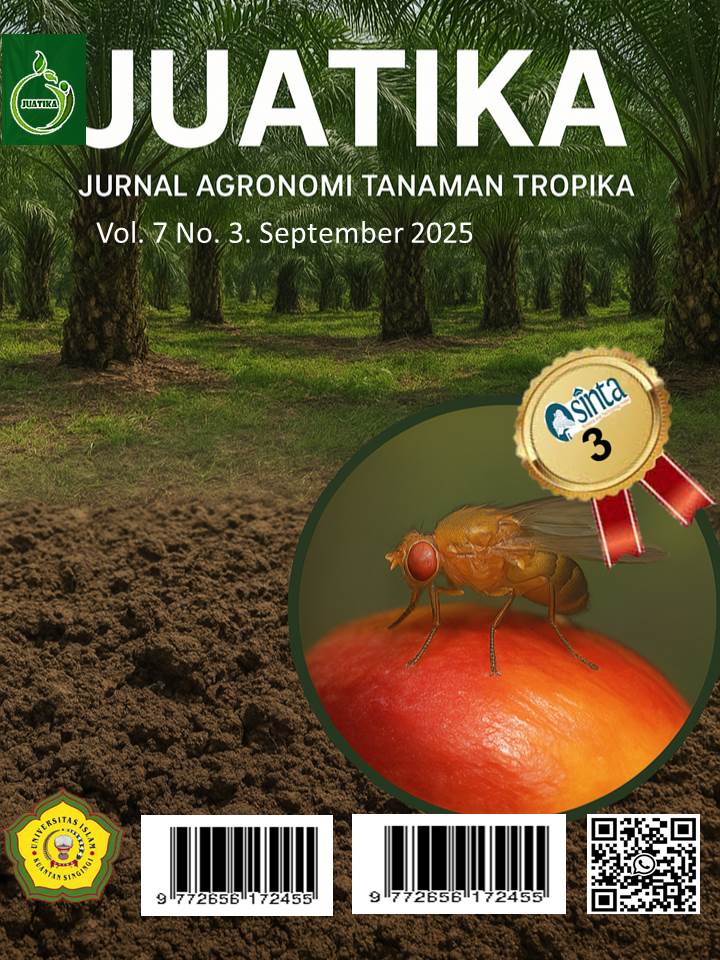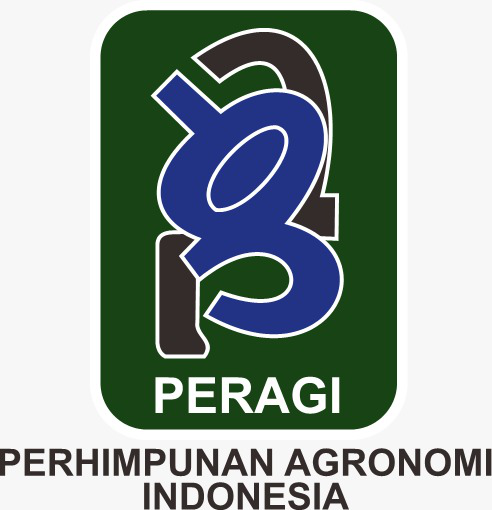Study of Atonic Concentration and Types of Biostimulants Applications on Chili Pepper (Capsicum frutescens L.) Production
Abstract
The study aims to determine the level of atonic concentration and the type of biostimulant that can increase the yield of small chili peppers in the lowlands. The design used was a factorial Randomized Block Design (RBD) consisting of two factors. The first factor is the concentration of atonic (A), namely: A0 = 0.0 ml / l; A1 = 1.5 ml / l, A2 = 2 ml / l; and A3 = 2.5 ml / l. The second factor is the provision of several types of biostimulants (B), namely: B0 = without biostimulant; B1 = Plant Growth Stimulator; B2 = EM4; B3 = Superbionic Fertilizer. Data analysis used analysis of variance and if there was significance, further testing was carried out with the Duncan Multiple Range Test. The results showed that the urea fertilizer package with a dose of 200 kg / ha, SP-36 50 kg / ha, and KCl 50 kg / ha gave better seed yields than the control but was not significantly different from higher doses of N, P, K fertilizers.
Downloads
Copyright (c) 2025 Jhon Hardy Purba, I Putu Parmila, Negussie Siyum

This work is licensed under a Creative Commons Attribution 4.0 International License.
Authors who publish with Jurnal Agronomi Tanaman Tropika (JUATIKA) agree to the following terms:
Authors retain copyright and grant the Jurnal Agronomi Tanaman Tropika (JUATIKA) right of first publication with the work simultaneously licensed under a Creative Commons Attribution License (CC BY 4.0) that allows others to share (copy and redistribute the material in any medium or format) and adapt (remix, transform, and build upon the material for any purpose, even commercially) with an acknowledgment of the work's authorship and initial publication in Jurnal Agronomi Tanaman Tropika (JUATIKA).
Authors are able to enter into separate, additional contractual arrangements for the non-exclusive distribution of the journal's published version of the work (e.g., post it to an institutional repository or publish it in a book), with an acknowledgment of its initial publication in Jurnal Agronomi Tanaman Tropika (JUATIKA). Authors are permitted and encouraged to post their work online (e.g., in institutional repositories or on their website) prior to and during the submission process, as it can lead to productive exchanges, as well as earlier and greater citation of published work.







 More Information
More Information



